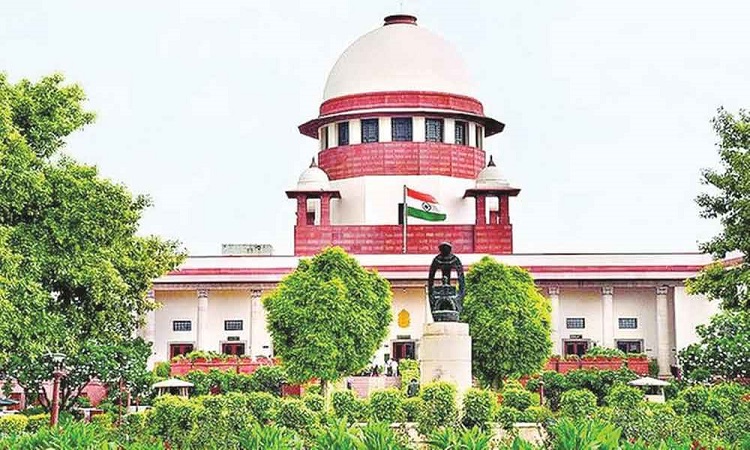
New Delhi: The Supreme Court on Wednesday said that the Kerala Governor, after the institution of proceedings, has exercised power by granting assent to one bill sent by the state government and seven bills have been reserved for consideration by the president.
A bench headed by Chief Justice of India DY Chandrachud said that it did not find any reason as to why the governor decided to keep the bills pending for an inordinate period of time.
The top court reiterated its judgement on the Punjab Government and said that the power of the governor cannot be used to pause the law-making exercise of the legislature.
However, the top court clarified that the prayer seeking guidelines on the power of the governor does not fall within the ambit of these proceedings. The top court expressed hopes that some political sagacity prevails between Chief Minister and Governor; otherwise, they may consider laying guidelines. The top court also granted liberty to the Kerala government to amend the petition.
The Kerala government was represented by Senior Advocate KK Venugopal, the former attorney general. Current Attorney General R Venkatramani appeared for the Centre.
The Kerala government had moved a petition in the Supreme Court against Governor Arif Mohammed Khan for inaction on his part regarding eight bills passed by the state legislature and presented to him for his assent under Article 200 of the Constitution.
"Of these, three bills have remained pending with the governor for more than two years, and three more in excess of a full year," the petitioner said.
The conduct of the Governor, as would presently be demonstrated, threatens to defeat and subvert the very fundamentals and basic foundations of our Constitution, including the rule of law and democratic good governance, apart from defeating the rights of the people of the state to the welfare measures sought to be implemented through the Bills, the Kerala Government said.
The pending bills include the University Laws Amendment Bill, Kerala Co-operative Societies Amendment Bill, Kerala LokAyukta Amendment Bill and Public Health Bill.
"Article 200 of the Constitution casts a solemn duty on the Governor of a State by requiring that on the presentation to him of any Bill passed by the State Legislature, he "shall declare either that he assents to the Bill or that he withholds assent therefrom or that he reserves the Bill for the consideration of the President," the petition said.
"The words "as soon as possible" necessarily mean that not only should pending bills be disposed of within a reasonable time, but that these Bills have to be dealt with urgently and expeditiously without any avoidable delay. This phrase conveys the clear intention of the Constitution that the Governor has to treat the Bill presented to him with a sense of urgency.
The urgency should normally mean a few weeks and nothing more, as the State Legislature, through its elected representatives has debated a Bill and has finally decided that the public interest would require, as a part of the governance of the State, to have the Bills made into law as soon as possible," the petition said.
"Grave injustice is being done to the people of the state, as well as to its representative democratic institutions (i.e., the State Legislature and the Executive), by the Governor by keeping bills pending for long periods of time, including three bills for longer than two years. The Governor appears to be of the view that granting assent or otherwise dealing with bills is a matter entrusted to him in his absolute discretion to decide whenever he pleases. This is a complete subversion of the Constitution. Each of the bills that are pending with the Governor is in the public interest of the people of Kerala, inter alia, by improving the state of public health infrastructure to tackle communicable diseases [by applying the lessons learned during the COVID pandemic] and by making state university laws consistent with central laws to create uniform national standards," the petition said.
"The failure of the governor to act thus affects the rights that would accrue to the people of the state. The conduct of the governor in keeping bills pending for long and indefinite periods of time is also manifestly arbitrary and violates Article 14 of the Constitution. Additionally, it also defeats the rights of the people of the State of Kerala under Article 21 of the Constitution by denying them the benefits of welfare legislation enacted by the State Assembly," the petition said.
In the petition, the Kerala Government urged to declare that the Governor is bound to dispose of every bill presented to him within a reasonable time, which, considering the democratic process and the needs of the people to have welfare measures and other laws affecting public interest, means to be disposed of "forthwith or without any delay.
The petitioner urged the top court to declare that, despite the constitutional position, the governor has failed in the exercise of his constitutional powers and duties.
The petitioner sought to issue directions to the governor to dispose of the pending bills without any further delay. (ANI)







